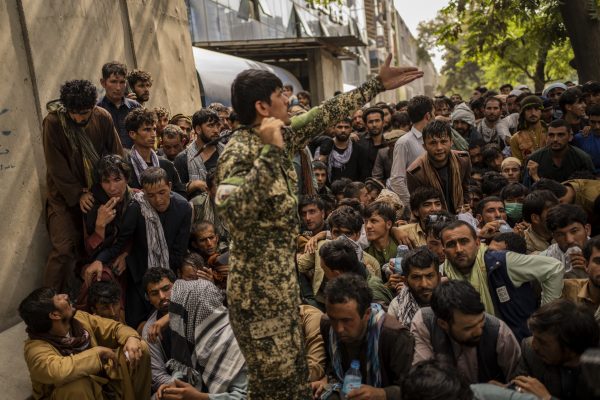
U.N. Secretary-General António Guterres characterized the pledging of more than $1 billion in humanitarian and development aid for Afghanistan this week as “a quantum leap in relation to the financial commitment of the international community towards the Afghan people.”
By the end of Monday’s meeting in Geneva, nearly 100 United Nations member states had pledged more than $1.2 billion in aid for Afghanistan, which has slid toward an ever-deepening humanitarian crisis with the collapse of its Western-backed government in mid-August.
The Taliban’s ascension to power in Kabul has given way to an economic crisis, which in tandem with droughts has fueled a food crisis, too. The Afghan government’s reserves were stashed for safekeeping in Western banking institutions, which froze the accounts last month. The International Monetary Fund and the World Bank halted aid in mid-August, too.
According to the U.N. the Taliban have provided “written assurances” guaranteeing the U.N. will be able to operate in Afghanistan and promising to provide security as needed.
“So not only there is an attitude of acceptance but there is an attitude of support,” Guterres commented. “There is a clear interest of the Taliban also to engage with the international community and I think this is what gives also the international community some leverage.”
International powers are not necessarily as convinced of the Taliban’s goodwill.
The United States pledged $64 million in new humanitarian assistance to Afghanistan, bringing U.S. aid to Afghanistan to nearly $330 million for 2021 alone. In a statement, U.S. Secretary of State Antony Blinken said U.S. aid would flow through independent humanitarian organizations, including the United Nations High Commissioner for Refugees (UNHCR) and the World Health Organization (WHO). Blinken said Washington would “work with the international community to help ensure that the Taliban follow through on its commitments and advance unhindered humanitarian access” which he stated included freedom of movement for “aid workers of all genders, safety and security of humanitarian staff, and safe passage for all those who wish to leave Afghanistan.”
In a video message to the pledging conference, U.S. Ambassador to the United Nations Linda Thomas-Greenfield said, “We need oral and written commitments made by the Taliban about operating rights of humanitarian agencies and the treatment and rights of minority groups, women and girls to be upheld… Words are not good enough. We must see action. The international community is unified in this message.”
The international community is not necessarily unified regarding how to approach the current powers-that-be in Kabul. The announcement of an all-male, all-Taliban caretaker government last week was met by some countries with criticism and others with passive acceptance. Russia and China, in particular, seem ready to officially recognize a Taliban government while Western countries are certainly not.
For years, many countries and donors have conditioned aid to Afghanistan on human rights progress, but leveraging aid to win concessions from the Taliban troubles aid officials as it may slow the delivery of much-needed assistance to vulnerable populations.
How well the international community can provide humanitarian aid to the people of Afghanistan without enriching the Taliban in some fashion is another question. The Taliban don’t need to skim off the top of provided aid to benefit politically from its delivery; but Afghans are selling their belongings in the streets to get cash for food, so it seems grotesque to quibble over the political implications of aid delivery at this juncture.
Since 2001, billions and billions of dollars in aid have flowed into Afghanistan. Summing only the World Bank’s available data on net official development assistance and official aid received by Afghanistan (in current U.S. dollars) from 2001 to 2019 comes to more than $77 billion.

0 Comments